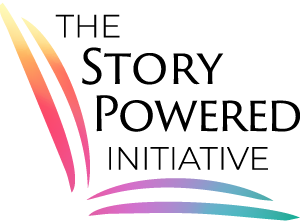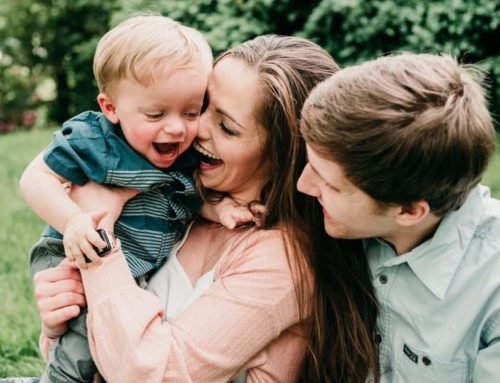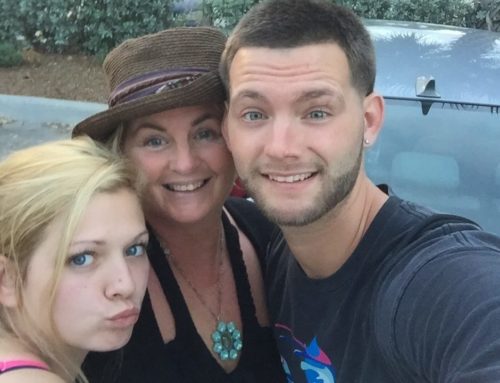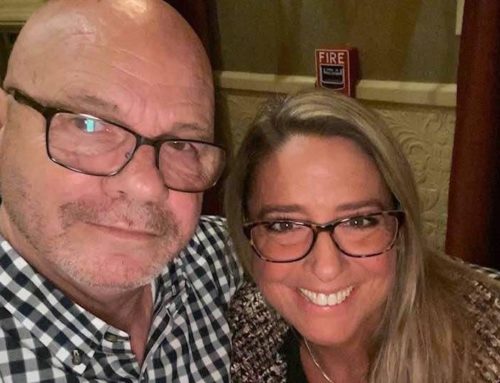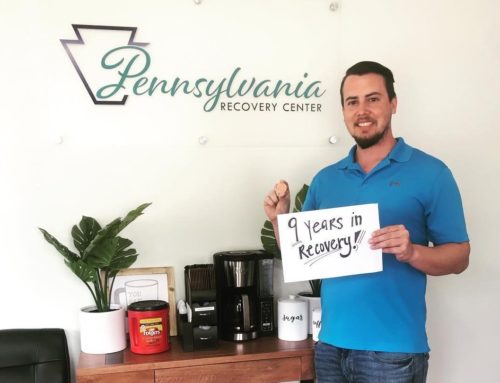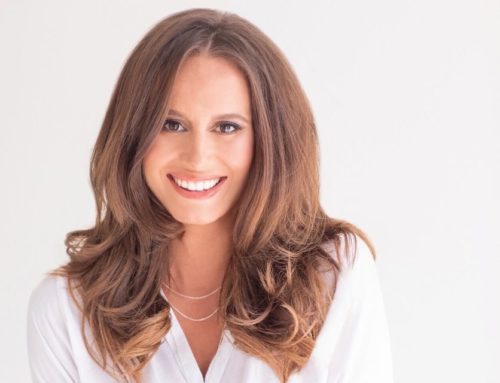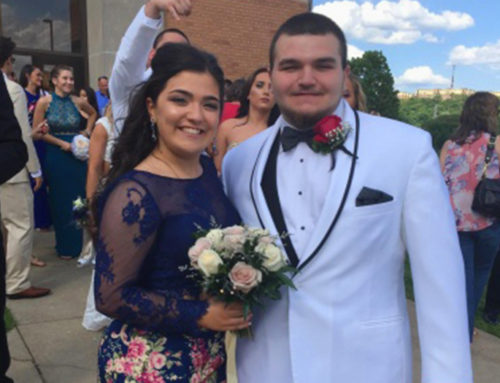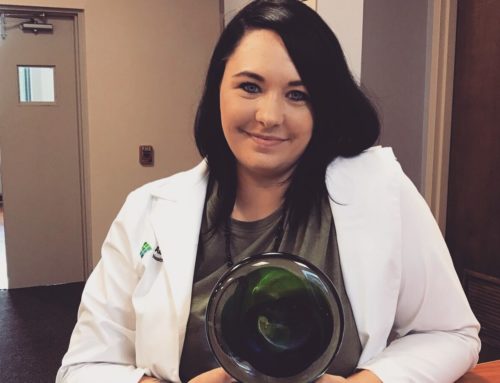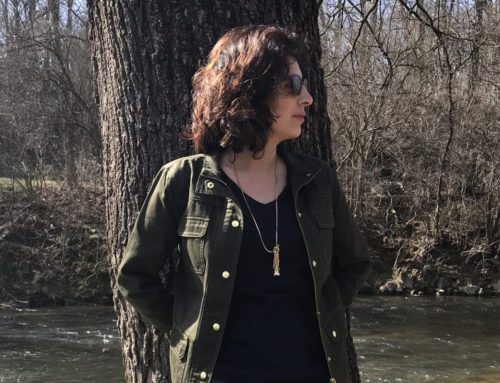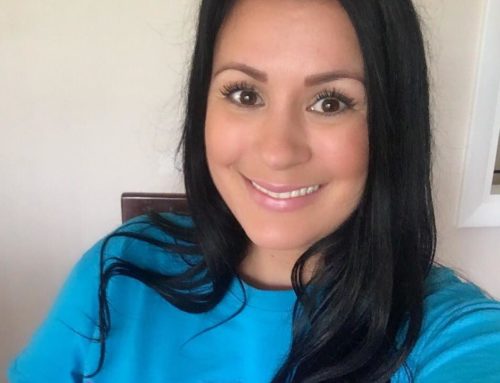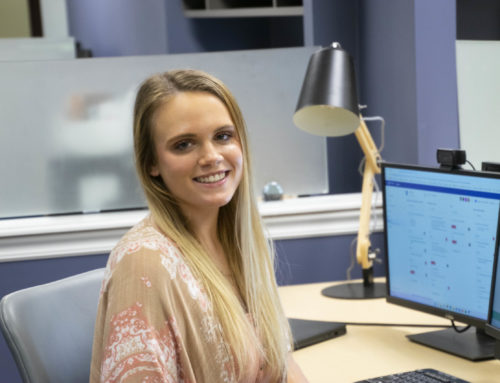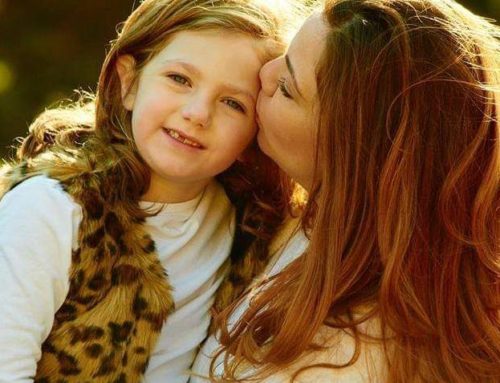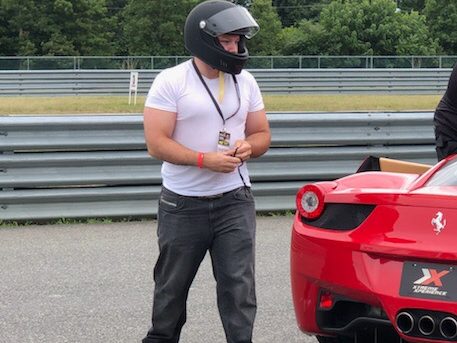

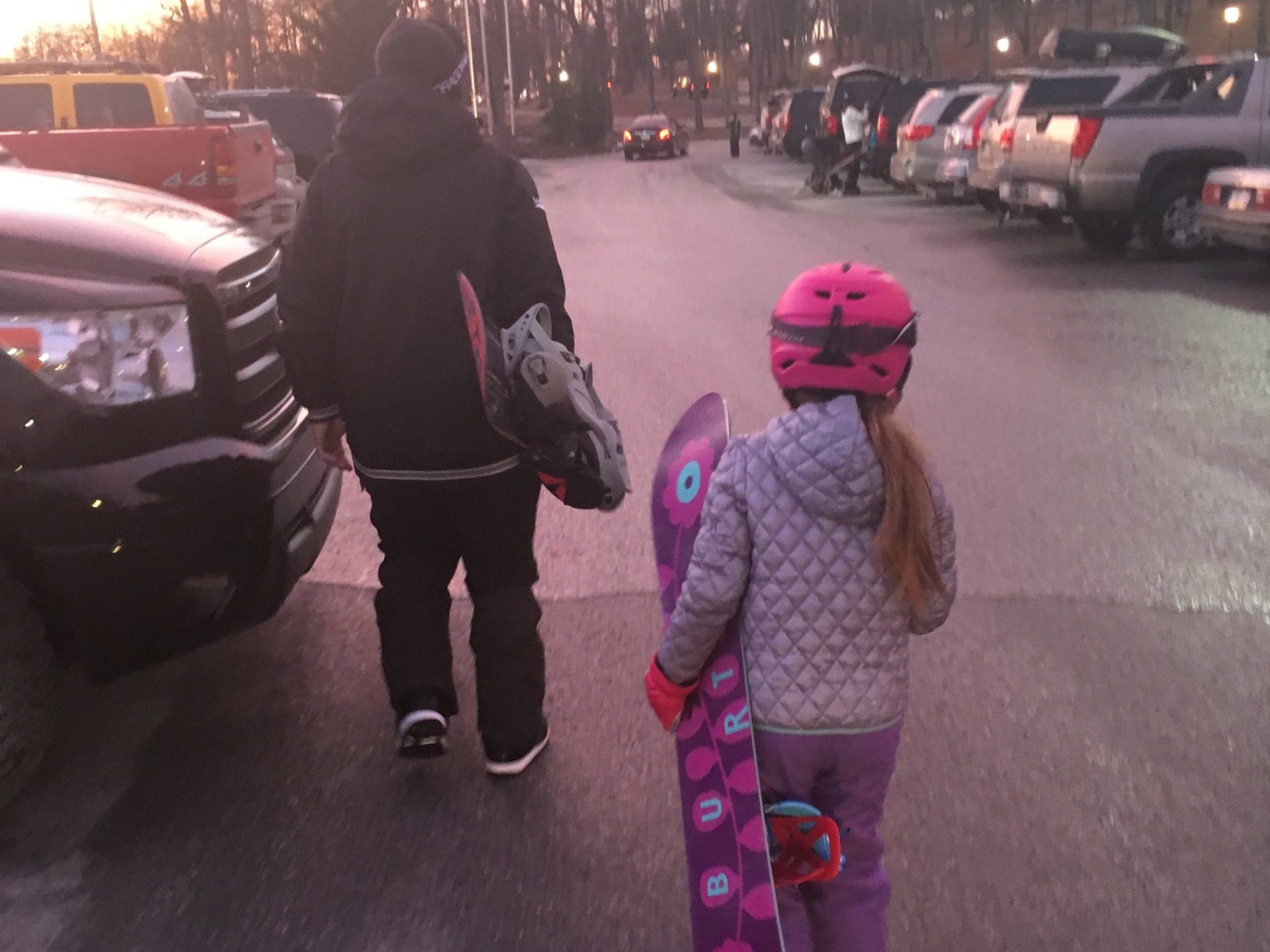
"Narcan helped me stay alive long enough to begin working on the mental aspect of addiction and eventually the emotional aspect."
I grew up in a tiny town right outside of Scranton, PA. I started using heroin at 13. It’s important to me for people to understand that my environment had little to do with my addiction. My mom died of ovarian cancer when I was nine, but that has nothing to do with me being an addict. My dad was a single dad, a truck driver, and a bartender because he had to pull a lot of stuff together to make money; none of that has to do with me being an addict. What happens is that when I put these chemicals in my body, I have an adverse reaction unlike other people.
When I first got sober, we were out at a restaurant and my dad ordered a Jack and Coke. He took a sip out of it, and he pushed it away. I asked him why and he said, “There’s too much whiskey in there.” My first thought was: “Score! You get another drink because they messed it up – and another score because you get to finish that first drink too.” He said he didn’t want another one and drank water afterwards and didn’t even complain. I remember, looking at the glass on the edge of the table and obsessing about it thinking, “Wow, we really are different.” That really made it clear that I was different physically and mentally from my father.
I like to use the analogy of having an allergy. It doesn’t explain everything, but I think it’s helpful to understand that people with substance use disorder have an adverse reaction to a substance that in similar amounts does not affect others.
Even at an early age, I knew that substances affected me differently because I would be excited to go get wasted with my friends and then would be the last one up walking around asking, “Why are you all passed out? We need to get more.” At other times I would try to use much less than others and be the first to pass out. I couldn’t control my reaction.
The first time I tried heroin at age 13 I snorted half a bag and said, “This isn’t working,” so I went straight into intravenous use. I’m a diabetic so I already knew how to use needles. This was on a car ride home from Newark with my friend and his older brother. While using heroin, I was also using multiple substances. I go for the effect. When I was younger, I got caught a couple times by the bus driver for drinking since he smelled alcohol. Then, I discovered heroin, and people can’t detect it. I thought, “This is great – and I don’t get as sloppy.” It gave me the effect I wanted, and I felt like I could hit my mark every time – but then obviously, my mark started to move around, and I would overshoot it and undershoot it.
Around 15 or 16, I started to notice that substances affected me negatively. Going to parties in high school, I used to bring a 12-pack because I could drink eight beers and then have four beers left to be social and give away. But, if you touched one of my eight, I would kick you in the chest. Eight beers and two bags of heroin got me to this great spot that I thought was fantastic, but then I started to pass out and overdose. Around 15, 16, and 17 years old, I completely lost the ability to control my use. I crashed multiple cars and got a DUI when I was 16, but the perception in my town was like, “Ah, it’s common. It shouldn’t have happened, but you know, just get yourself together.” I went to a juvenile detention center for nine months. Six weeks after leaving juvie, I started using again.
I’d be at a college party and standing on tables like, “Oh, I’m an alcohol junkie, and it’s amazing.” I didn’t understand that what that actually means is that I’m on a runaway train and I literally have no control. Either I die by jumping out or I die hitting something head-on. I didn’t understand that, but at that point, it didn’t really matter. By the time I was 18, right before I went to county jail, I thought, “Man, I hope I die.” Then, I would be mad when I woke up and thought, “I can’t even die right.” At this point, you realize something is wrong, but it’s almost like watching a car accident happen thinking, “Well, there’s nothing I can do.” One time after an overdose, my sister picked me up from the hospital and asked me, “What the hell are you doing?” I told her some fake story. Years later after I made amends with her, she said, “I knew you were lying, but looking in your eyes, you believed every word you were telling me.” It’s true; I was so delusional about it, so while I realized something was wrong, it didn’t actually register at the time.
In my later teenage years, I was going back and forth to Newark, New Jersey, New York City, and the Scranton area selling drugs. From 18 to 21, I spent three years in jail for selling weapons. When I was released around 21, I got back together with a girl I really cared about. I told her that I wasn’t even going to drink because I didn’t want to go back and I didn’t want to screw up our relationship. I truly meant that. However, I didn’t change anything else in my life; I hung around the same people and went to the same parties. In a couple months, I went from being the best boyfriend to living in my car, just a mess. Eventually, I went back to rehab.
After rehab, I tried going to meetings, but felt like I didn’t have time for that since I was working three jobs. Financially, I didn’t need to work that many jobs, but it made me feel like my life was together. Everything was good on the outside, but I couldn’t understand why all my relationships were still trashed. I spent those two and half years in complete abstinence, and it was probably the worst point in my life because I was not changing anything outside of my using. I was an uncomfortable and hopeless man. I went back to using.
Throughout my years of use, I overdosed about 30 times. I always came back, sometimes because of Narcan. I laugh at people who say, “Oh, Narcan is enabling people to use.” I didn’t even know Narcan existed the first six times I got hit with it. I would wake up not knowing what happened, and at that point I didn’t care much either. Eventually after my last overdose, I went into five and a half months of inpatient treatment, which started my sobriety.
Today, I’ve been in recovery almost nine years. Narcan helped me stay alive long enough to begin working on the mental aspect of addiction and eventually the emotional aspect. I learned things in treatment that helped me understand my addiction and that helped me recover. I was able to see a glimpse of myself getting better, and I continued to pursue that. For a long time I thought I was a criminal with addicted behavior, and then I found out that I was an addict with criminal behavior, and that was an important distinction. Through treatment, I also connected with people in the recovery community. It wasn’t just about going to a meeting every now and then; people would take us to events, and we’d play kickball, and we supported each other. I felt like I had found people who could actually help me after treatment ended. The Office of Vocational Rehabilitation also helped me get back to work. I hope people are starting to realize that people in recovery are great workers who do great work, but we need to continue to treat addiction to do so.
After I left treatment, the employees from the treatment centers that I would see periodically would ask me when I was coming to work for them. After years working in construction and auto jobs, I’ve switched to working in the recovery field. The biggest reason I switched is the people who were pushing me toward it. They helped me see something in me that I hadn’t seen. After a few years of sobriety, I went to college.
This is why I am sharing my story. It was amazing to realize that I could walk through my day without obsessing about using or obsessing about not using. The problem has been removed. At first, the idea blew my mind, but now I have experienced it. In recovery, I get this great opportunity to be in my daughter’s life, and to be in her mom’s life, and to have relationships with people I care about.
